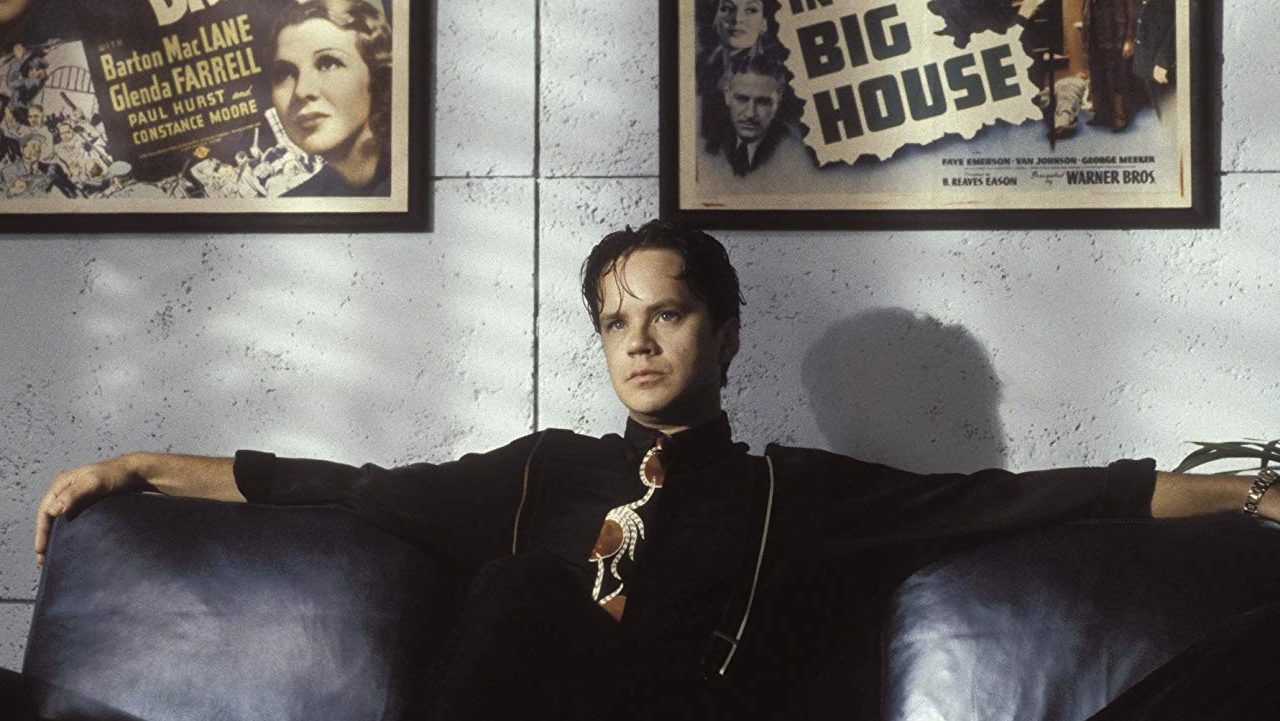Robert Altman | 2hr 4min

The modern, commercialised Hollywood of The Player is so steeped in the grand mythology of American filmmaking, it is no wonder that those left to continue its legacy fall so drastically short. It isn’t exactly nostalgia that Robert Altman is expressing here, though his sentimental adoration for the great cinematic masterpieces is evident. This industry has been so thoroughly milked of originality that virtually every new pitch thrown out is a retread of old ideas – Ghost meets The Manchurian Candidate for instance, and even the potential for a dark sequel to The Graduate is seriously considered.
On one hand, the churning out of tired tropes and cliches at least brings in audiences and guarantees Hollywood’s long-term survival. On the other, it destroys any potential for creative innovation, teaching filmmakers to sacrifice artistic integrity for box office earnings. As a metacommentary on the American movie industry, mass entertainment, and the necessity of pandering to audience expectations, The Player occupies a curiously subversive space among all of this, turning one Hollywood studio executive into the star of a crime plot he would much rather stay out of. Much like those films it is sending up too, The Player wears its neo-noir, thriller, and comedic influences on its sleeve too, albeit in much more self-reflexive manner.
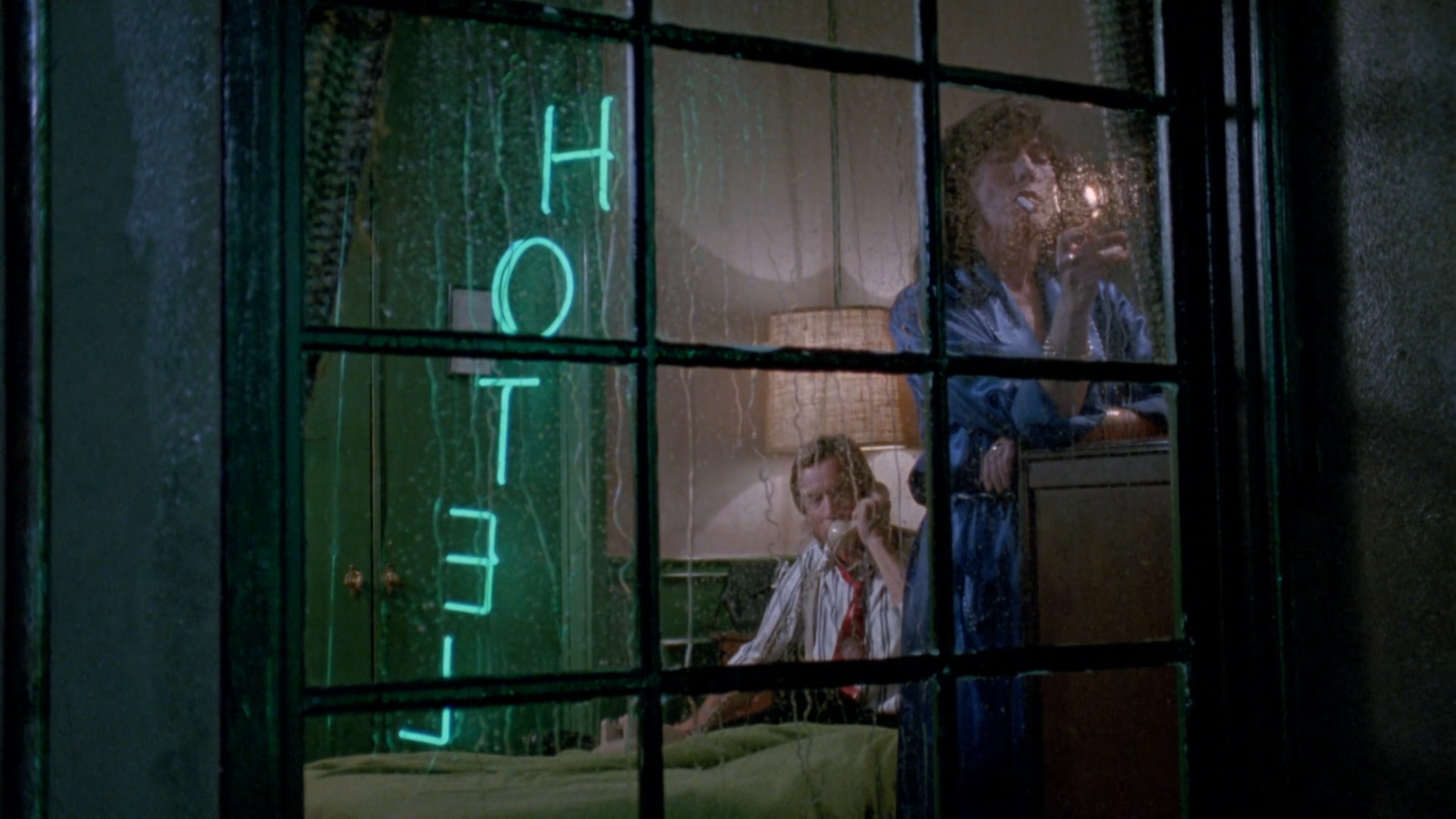
In many ways, this is no huge departure from Altman’s usual interrogations of genre traditions, having previously taken on war, neo-noir, and western films, and yet it is worth noting that The Player comes out over a decade after his unparalleled run of hits in the 1970s. His penchant for satire has not faded, though his targets are closer to home than ever, tearing down the egos behind his line of work. Writers driven by pure passion put everything on the line, desperately hoping that their script is the one to be picked out, while the producers who call the shots insensitively brush off a vast majority of them, only hiring the remaining few with the intent to warp their vision beyond recognition.
There is not a whole lot that separates our antihero Griffin Mill from every other executive who conforms to these rules. It is only through pure misfortune that he is the one to be targeted by a rejected screenwriter. Postcards have been turning up in his mail for some time now with threatening messages, and after some effort he finally locates the man who he believes is responsible – one David Kahane. The clumsy scuffle that incidentally kills David may disturb a guilt-ridden Griffin, though not enough for him to take responsibility for it. He can’t dwell too long on the ominous image of a writer lying face down in a neon red puddle, his hopes and dreams quite literally dead in the gutter. Pressures and deadlines are looming at work, heaping on a thousand other priorities that take priority over this one.
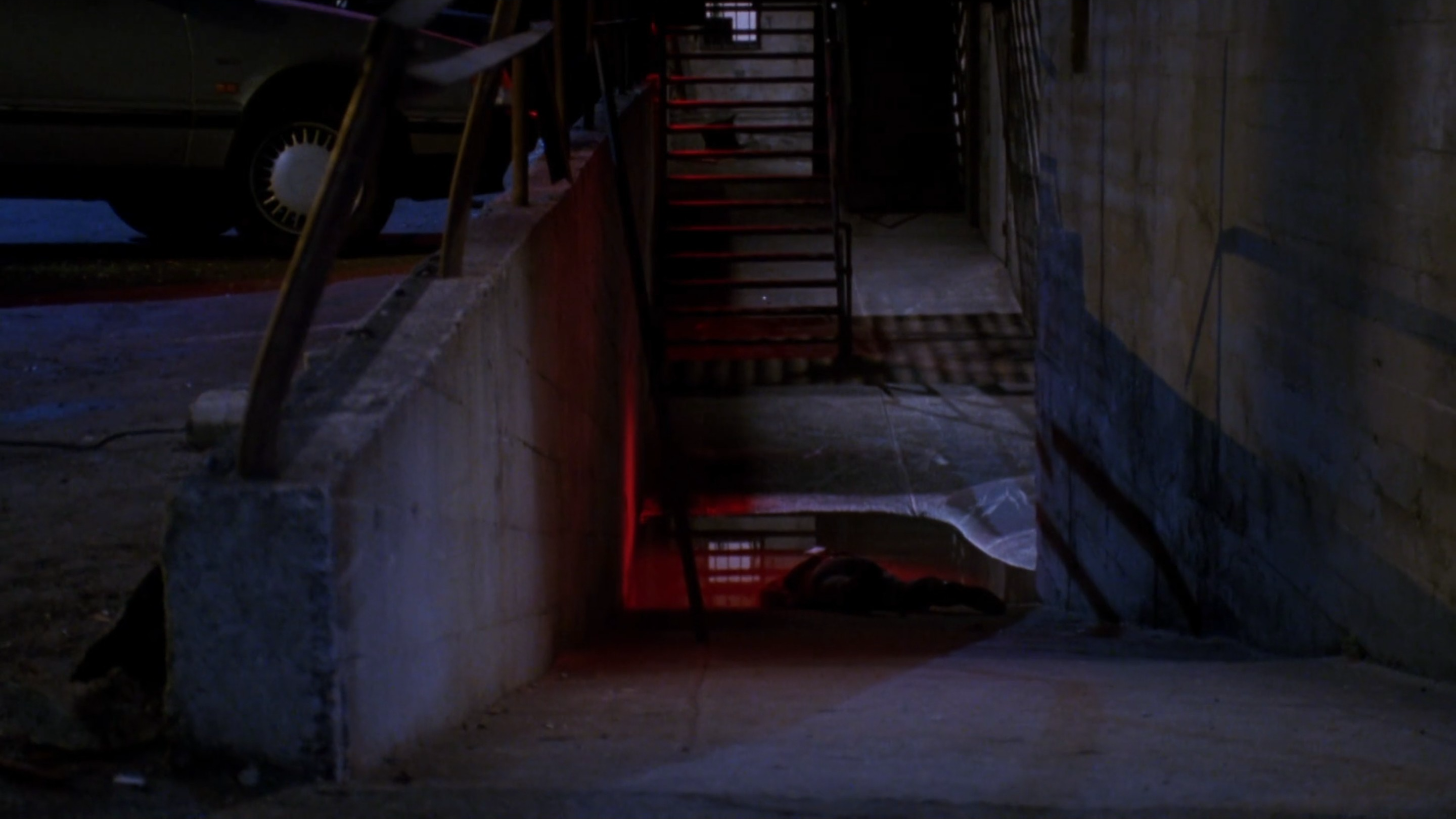
What a busy, expansive world Altman builds here too, recalling his talents that previously breathed life into cinematic depictions of Nashville, a rural Western town, and a war hospital, and now applying them to an urban landscape so vast that brutal murders simply blend into the miasma. Though not an overly beautiful film, his camera pans and zooms capture an organic naturalism not bound to any single frame, but rather sprawls beyond its borders. The lives of A-list celebrities, star-struck visitors, impatient producers, and eager assistants intersect in his chaotic overlapping dialogue here, refusing to limit the story of Hollywood’s dream machine to any one perspective.
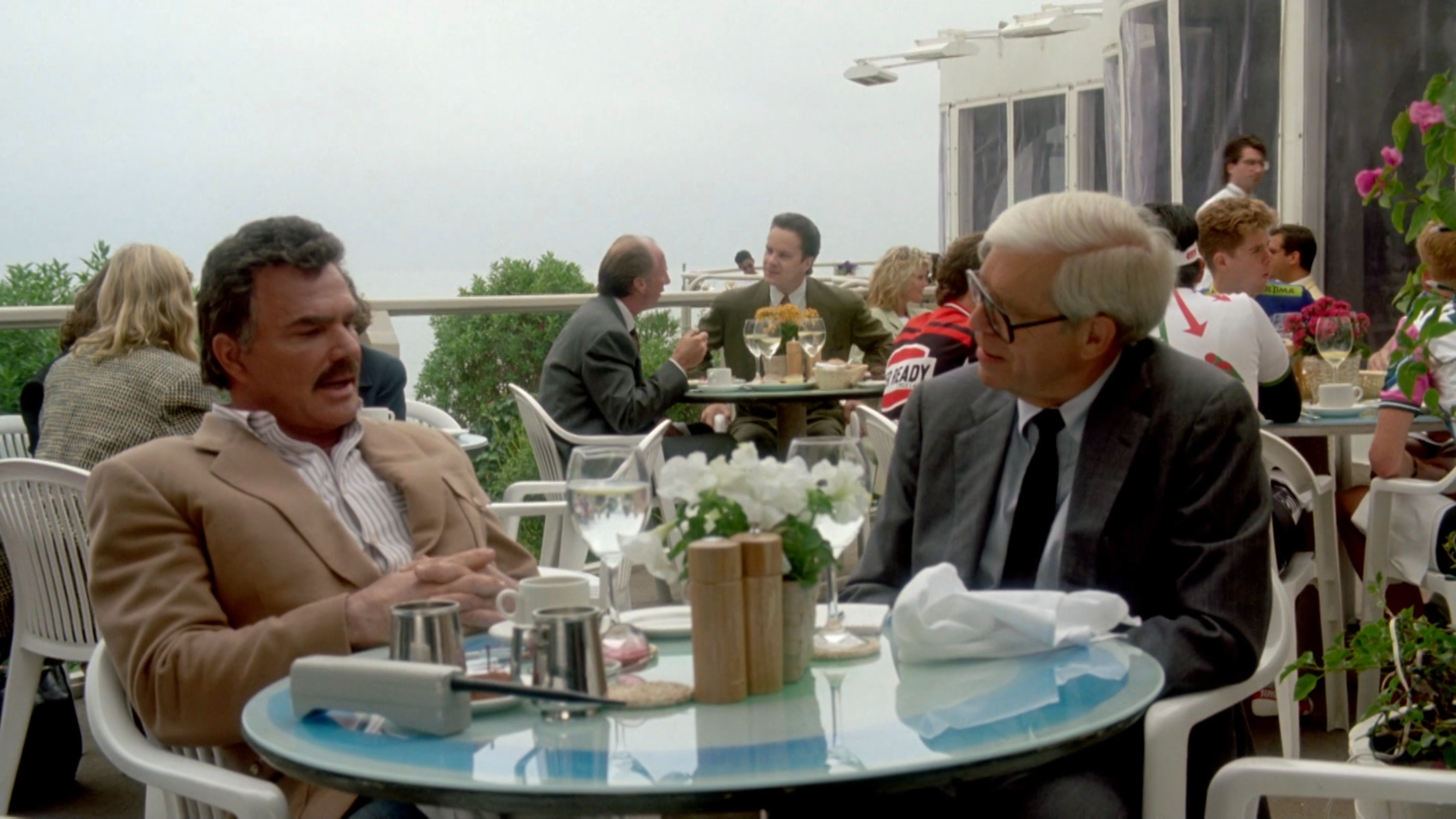
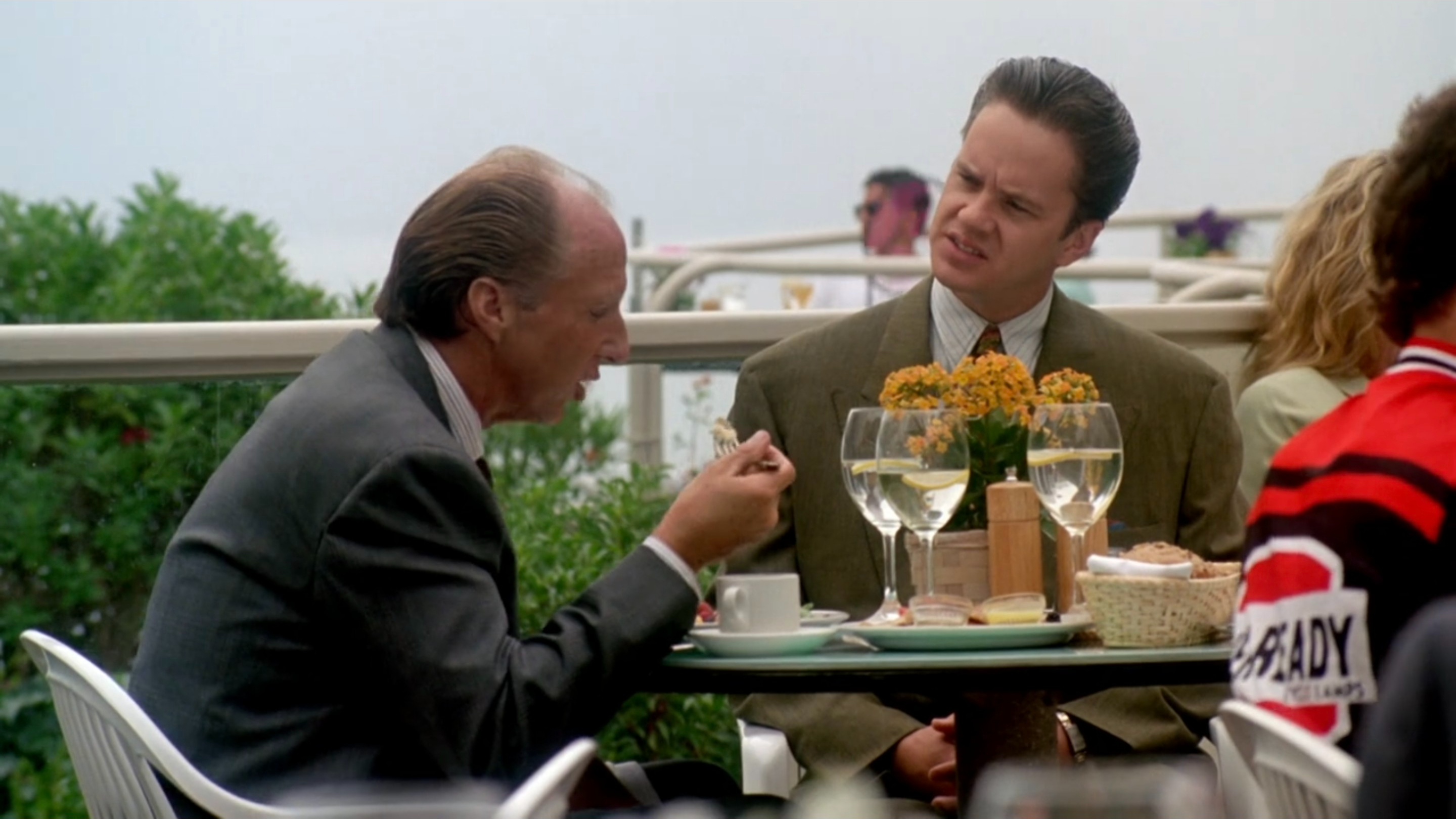
With this ensemble framework in mind, the eight-minute shot that opens the film effectively captures a slice of Hollywood’s everyday routines, commencing with a fourth wall-breaking clapperboard before hovering the camera just outside Griffin’s office window as conversations pass by. Despite the commotion, not a single detail escapes Altman, who briefly lingers on a discussion regarding the great long takes of cinema history. Touch of Evil reigns supreme, one studio bigwig asserts, claiming a family connection to the shoot while shutting down the delivery boy’s suggestion of the obscure British musical Absolute Beginners. The Player vaguely follows in Orson Welles’ lineage in this way, and yet there is a spontaneity to Altman’s roving camera which is quite distinct from Touch of Evil’s, crafting a shot that is entirely his own even as he pays homage to that which came before.
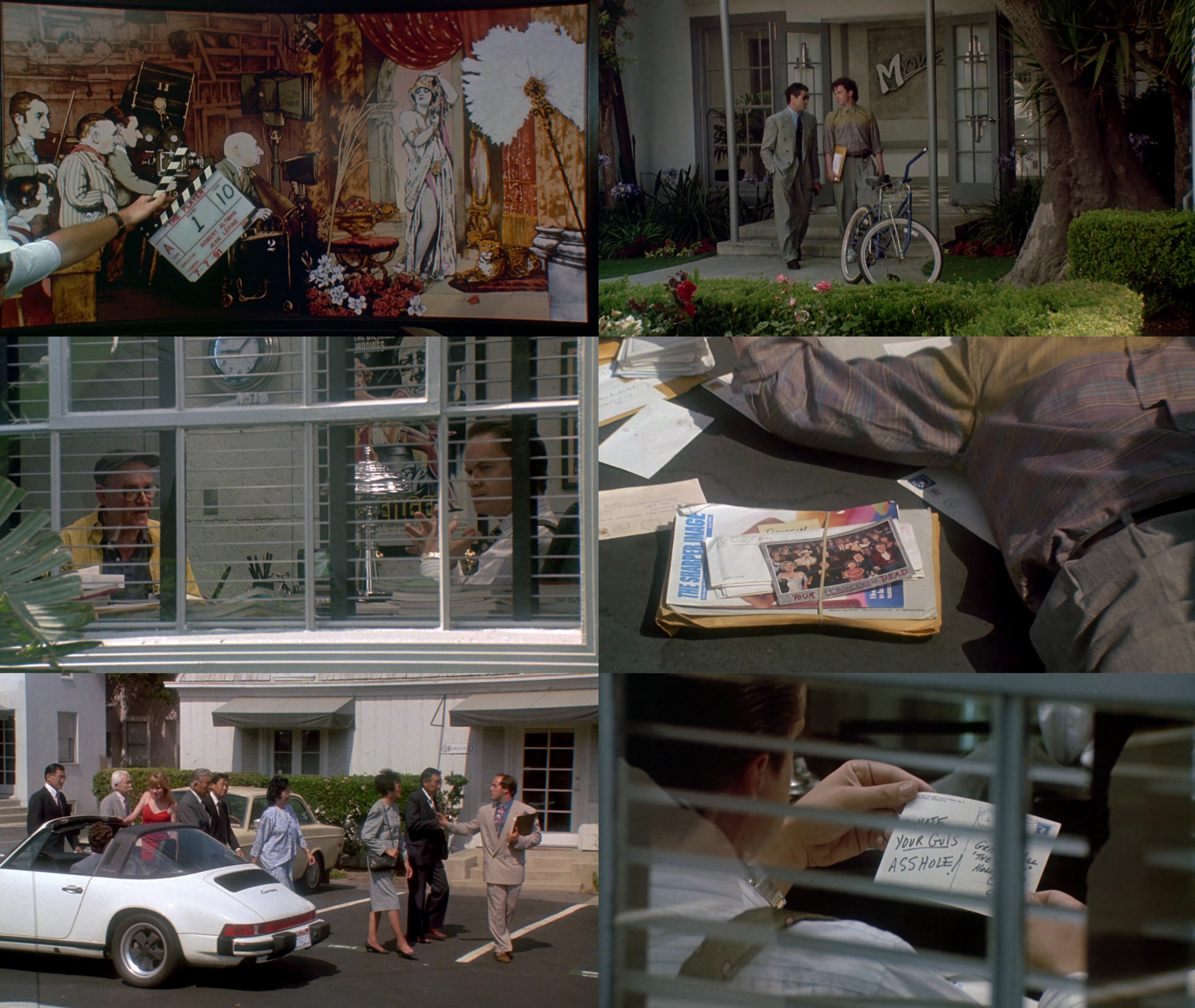
The microcosm of Hollywood captured in this opening also serves another purpose in The Player’s heavily intertextual screenplay. Whether hanging the threat of total failure over Griffin’s head by evoking the box office catastrophe of Heaven’s Gate, or having his stalker summon him with the fake alias of Joe Gillis, the writer from Sunset Boulevard killed by the movie star, Altman is using Hollywood’s historical legends to mark significant narrative beats. In this modern setting though, they are propped up as images of industrial icons while stripped of their substance, leaving foreign classics to be written off entirely.
“When was the last time you actually bought a ticket to see a movie? You actually paid your own money to see it?
“Last night. In Pasadena. The Bicycle Thief.”
“It’s an art movie, it doesn’t count. I’m talking about ‘movie’ movies.”
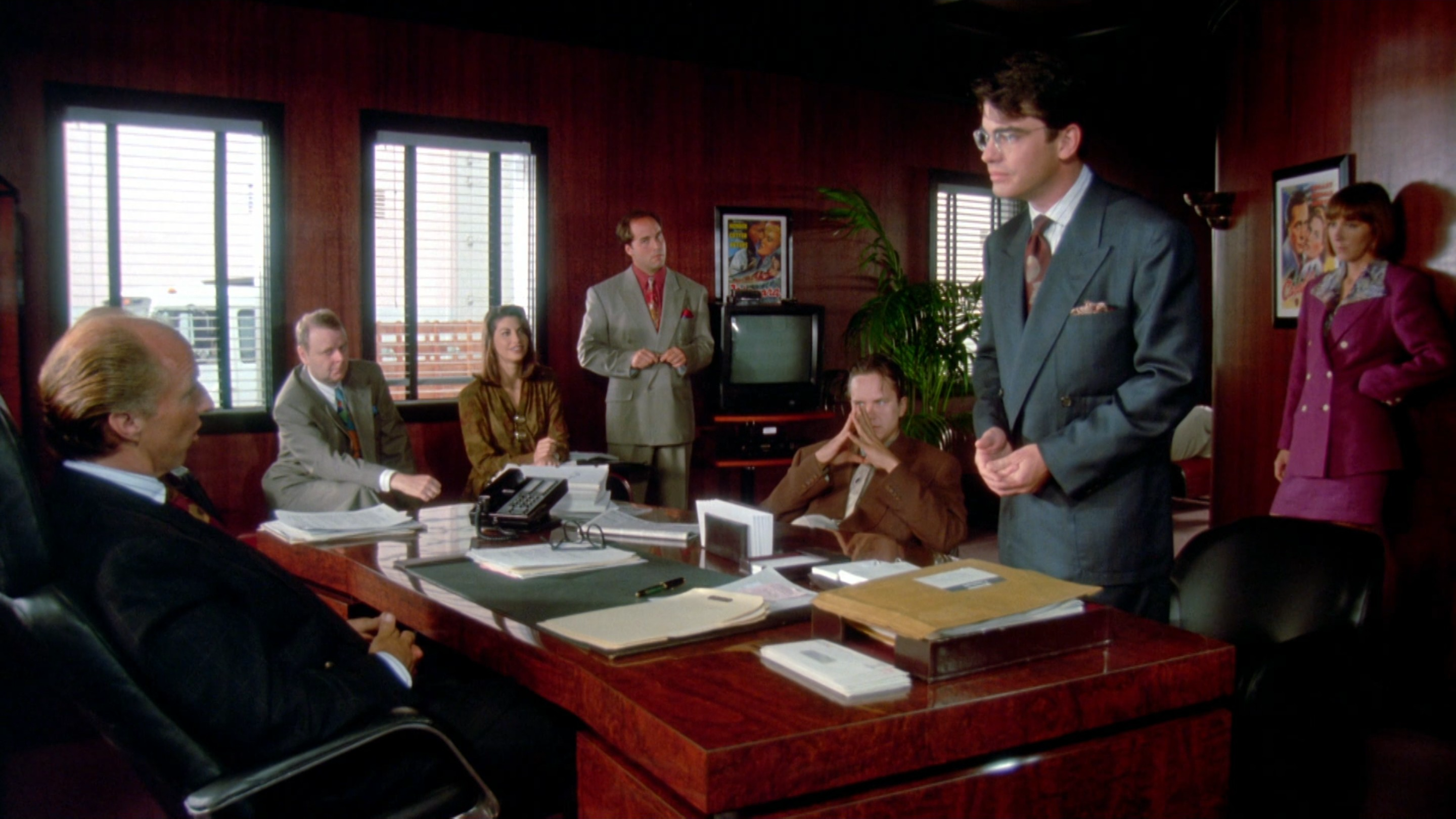
To executives like these who prioritise profits above all else, a Hollywood movie must tick off a list of boxes to be successful – suspense, violence, hope, nudity, sex, and a happy ending. Sure enough, Altman is consciously sprinkling in a little bit of each here too, subtly noting their contrived artifice as they consequently pull us out of the story. As for films that fall outside the mould like Habeas Corpus, the legal drama Griffin decides to greenlight – they can at least be reshaped into the desired form if the potential is there, and as long as the writers are open to making changes.
Rather than letting these cliches confine The Player, Altman delights in their escalation of narrative stakes across multiple subplots, as Griffin simultaneously discovers that David was not the man behind the postcards, finds his job under threat, and lands himself in the middle of a murder interrogation. Adding on top of that his perverse romance with David’s girlfriend, June, as well as his unlikely acquittal in a police lineup, and The Player’s keen manipulation of genre conventions pushes our suspension of disbelief in playfully comic directions.
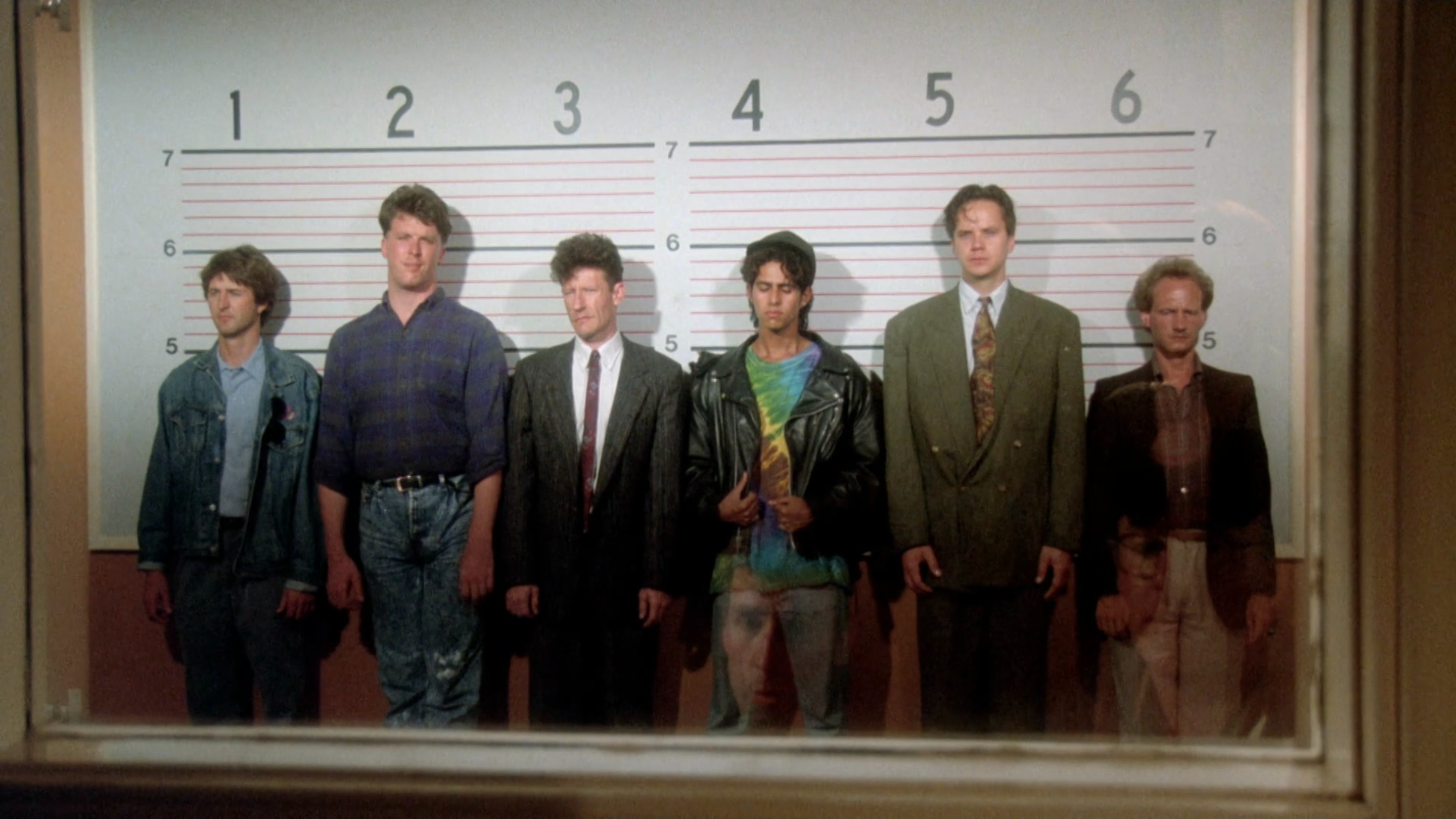
Going by the rules of Hollywood moviemaking, Griffin’s improbable reversal of fortune by the end of The Player is exactly how the story is meant to play out, paralleling the contrived happy ending of a heavily rewritten Habeas Corpus as it plays for test audiences a year later. “What took you so long?” a young Julia Roberts asks Bruce Willis as he heroically carries her from a gas chamber. “Traffic was a bitch,” he quips in return, setting up a corny one-liner that Griffin echoes in the final scene when he happily comes home to his now-wife, June.
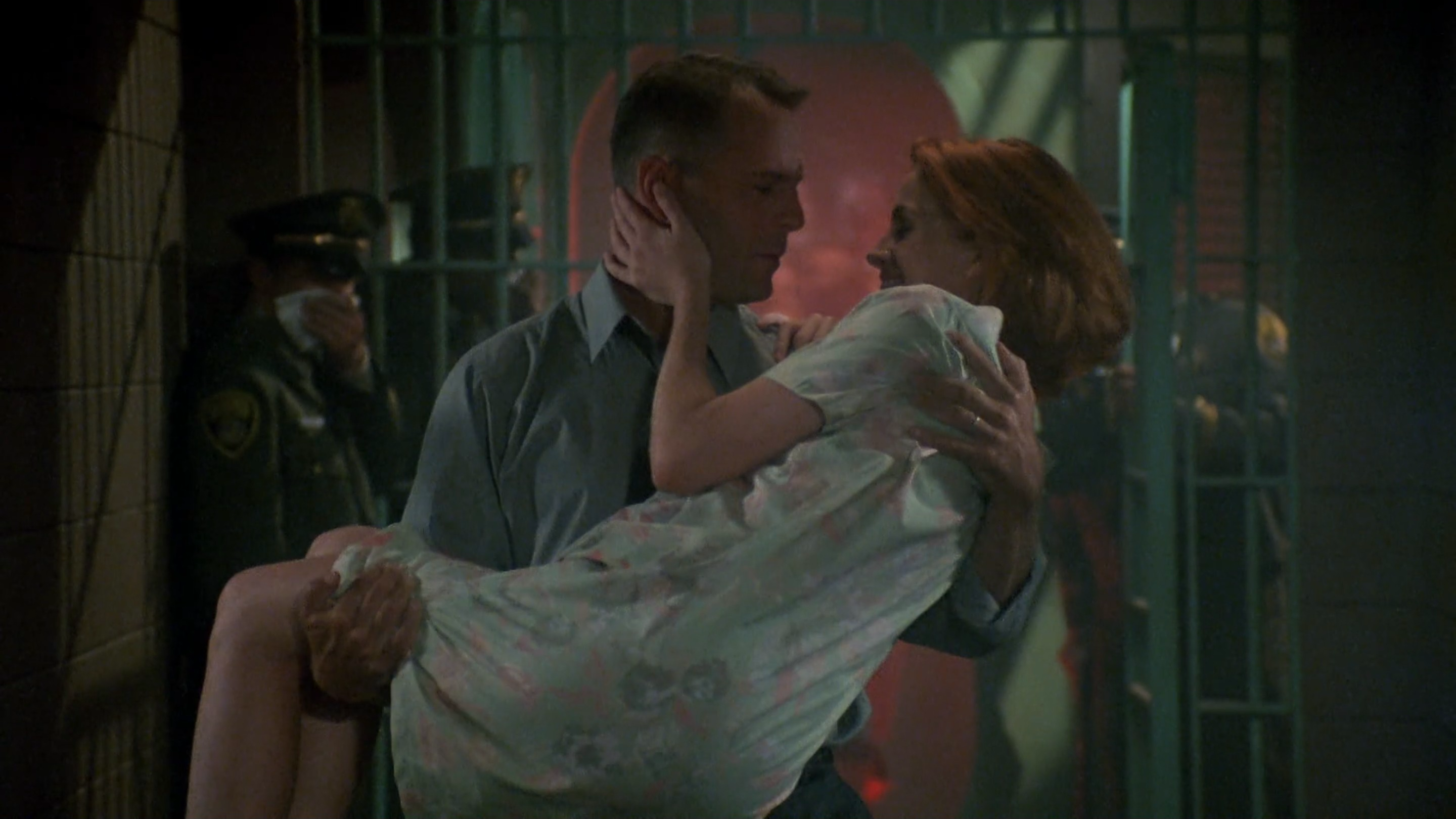
The self-awareness of this unexpectedly conventional resolution comes with yet another chilling twist though as Griffin receives a call from his colleague, introducing a man with a brilliant movie pitch. It is called The Player, and is about a studio executive who kills a writer, runs off with his girlfriend, and escapes his comeuppance. These similarities are more than just fate. “He gets away with it?” Griffin nervously asks. “Absolutely. It’s a Hollywood ending, Griff,” the anonymous, postcard-sending stalker on the other end of the line replies, still very much alive. “If the price is right, you got it.”
There are clearly greater powers than art or morality at play in the dream machine of The Player. As Altman’s dark satire winds to a discomforting close, he identifies a quiet insidiousness that resides in Hollywood’s happy endings. By irreverently playing within these set rules, he effectively turns our eyes towards the source of those narratives that dominate the cultural mainstream, and use their status to tell audiences what sort of people deserve success and good fortune. It is certainly no coincidence either that these winners are so often the same wealthy, obnoxious jerks with the power to determine what exactly those narratives are.
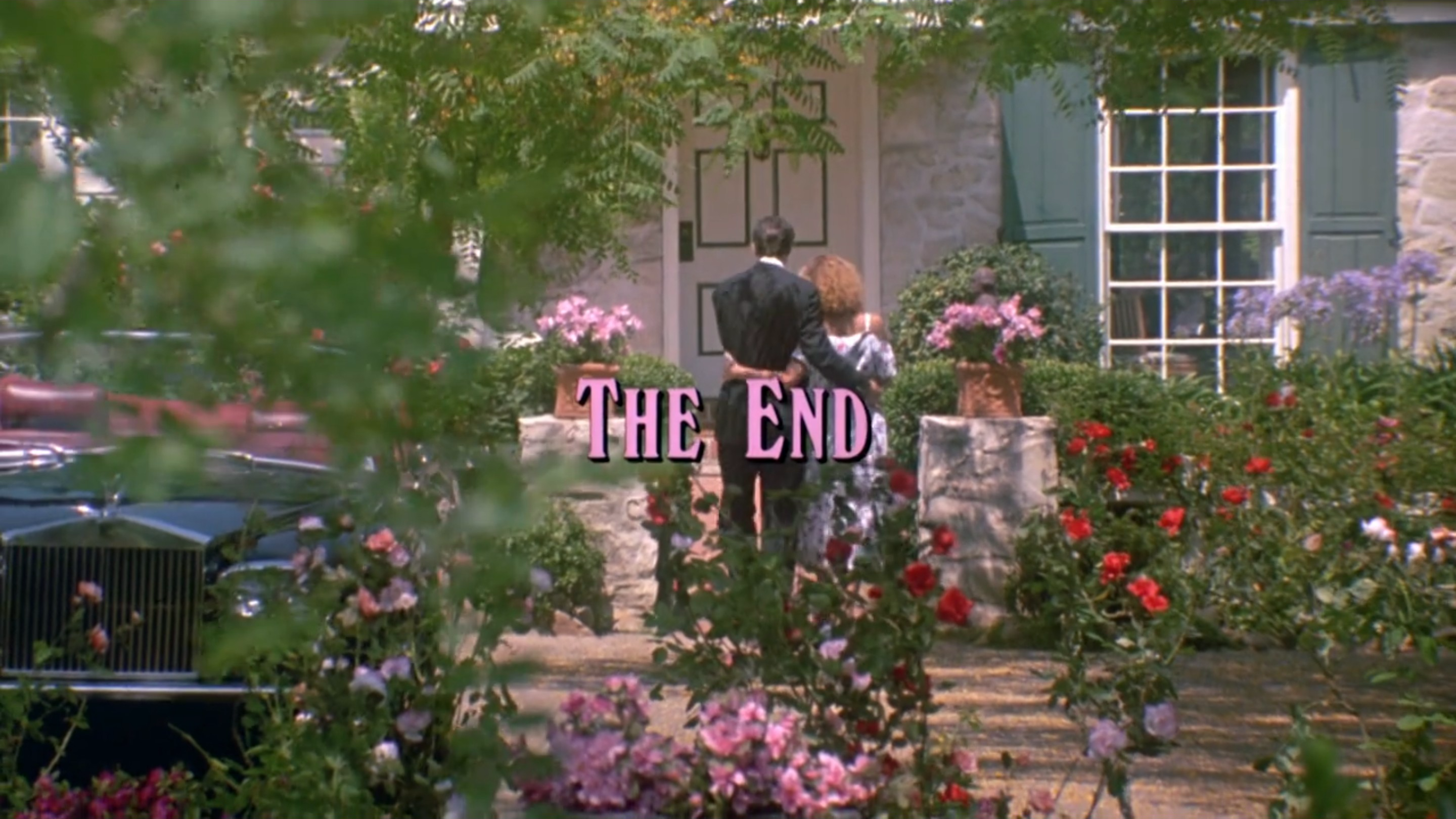
The Player is currently streaming on SBS On Demand, Amazon Prime Video, and The Criterion Channel, is available to rent or buy on Apple TV, or you can buy the DVD or Blu-ray on Amazon.

